
In the pharmaceutical industry, packaging plays a pivotal role in maintaining the safety, efficacy, and shelf life of medicines. The material used for packaging is just as important as the medicine itself, ensuring that it remains uncontaminated, stable, and secure throughout its lifecycle. Among various packaging materials, glass has stood the test of time, particularly for medicine bottles. From glass cough syrup bottles to prescription bottles, glass offers unparalleled benefits in protecting pharmaceutical products.
In this article, we will explore why glass bottles are used for medicine packaging, the advantages and disadvantages of using glass, and how Vanjoin Glass can be your ideal partner in providing glass packaging solutions for the pharmaceutical industry.
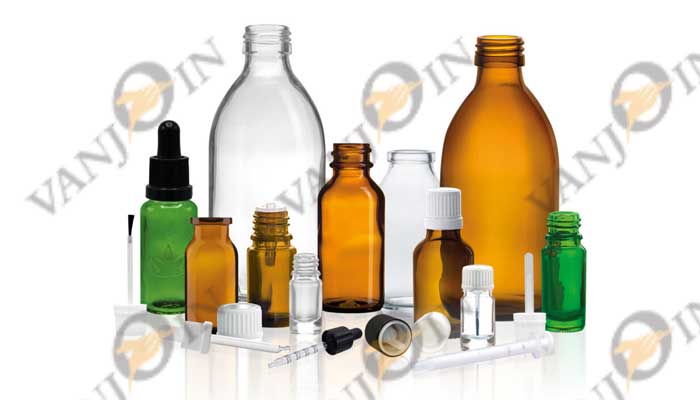
Glass Bottles in the Pharmaceutical Industry
Glass bottles are commonly used for packaging medicines, ranging from oral liquids and pills to injectable solutions. Due to its inert and protective nature, glass packaging material is the preferred choice of many pharmaceutical companies, ensuring that the medicine inside is protected from contamination, oxidation, and degradation.
Types of Glass Medicine Bottles
There are several types of medicine containers made from glass, each designed to meet the specific needs of different pharmaceutical products:
1. Glass Pill Bottles: Used for storing solid medicines like tablets and capsules. These bottles are designed to protect the pills from moisture and air, ensuring they remain intact and potent.
2. Prescription Bottles: These are typically used for storing liquid oral medications, syrups, and tinctures. Their airtight seals prevent contamination and preserve the medicine’s quality.
3. Glass Medicine Bottles for Injectables: These are specialized containers for injectable drugs, often featuring special closures and sterilization to ensure safety.
4. Glass Syrup Bottles: These bottles are used for syrup-based medications, with specialized neck finishes and caps to provide a secure seal and ensure a proper dosage.
Each type of medicine bottle serves a unique purpose, but they all share one common trait: the use of glass as the preferred packaging material.
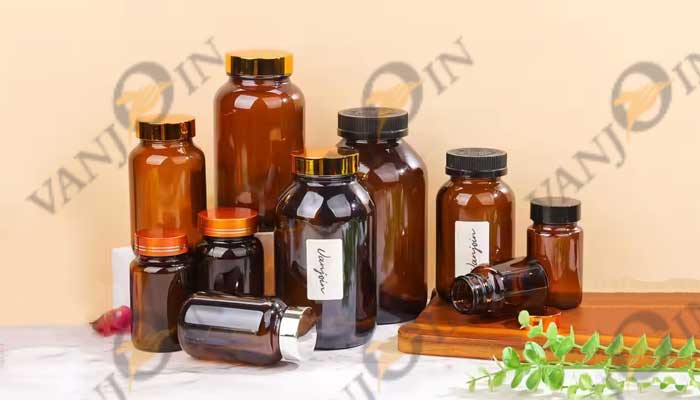
Why Glass Bottles Are Used for Medicine
Glass medicine bottles are widely recognized as the preferred packaging material in the pharmaceutical industry. Their unique properties make them ideal for preserving the quality, safety, and integrity of medicinal products. Let’s explore four key reasons why glass is the packaging material of choice for the pharmaceutical industry.
1. Superior Protection and Safety
Glass offers exceptional protection for medicines due to its airtight seal and chemical inertness.
Airtight Seal: Glass packaging provides a superior barrier against environmental factors such as moisture, oxygen, and light. This is especially important for storing sensitive medicines like vaccines, biologics, and antibiotics that are susceptible to degradation due to moisture or air exposure. The non-porous nature of glass ensures that external elements cannot penetrate the packaging, safeguarding the medicine inside.
Chemical Inertness: Glass is chemically inert, meaning it does not interact with or leach chemicals into the contents of the bottle. This property helps preserve the potency and effectiveness of the medicine, ensuring its safety and reliability over time. Unlike plastic materials, which may release harmful chemicals into the product, glass ensures that the medication’s composition remains unchanged, maintaining its intended therapeutic effect.
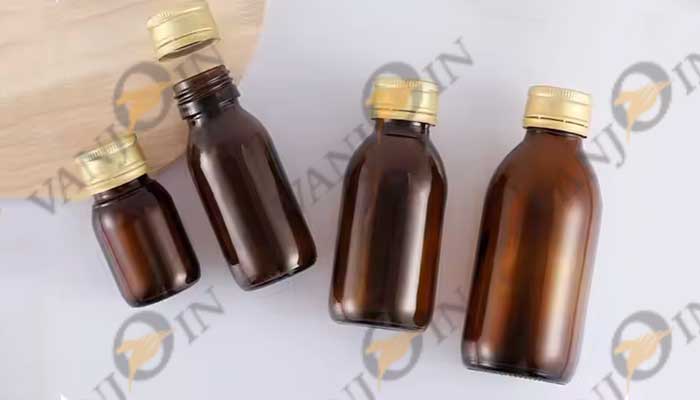
2. Market Trends and Growing Demand for Glass Bottles
The demand for glass bottles in the pharmaceutical industry is steadily increasing, driven by consumer preferences for eco-friendly and sustainable packaging.
Eco-friendly Packaging: With growing consumer awareness of environmental issues, there is a shift towards sustainable packaging. Glass is one of the most recyclable materials available. It can be recycled indefinitely without losing its quality or purity, unlike plastics, which degrade and may release harmful chemicals when reused. The pharmaceutical industry, in particular, is seeing an increasing demand for glass packaging, as companies look for ways to reduce plastic waste and minimize their environmental footprint.
Market Growth: According to Grand View Research, the global glass packaging market was valued at USD 55.6 billion in 2020 and is projected to grow significantly. This growth is particularly evident in the pharmaceutical sector, where the demand for glass packaging is expected to rise due to its sustainability, protective qualities, and consumer preference for eco-friendly materials.
3. Maintaining the Quality and Integrity of Medicine
One of the most significant advantages of using glass for medicine packaging is its ability to maintain the quality and preserve the shelf life of pharmaceuticals.
Protects Active Ingredients: Glass provides an effective shield against harmful UV rays that can degrade the active ingredients in sensitive medicines. UV light exposure can break down compounds in drugs, leading to reduced potency or effectiveness. Dark-colored glass bottles, such as amber or cobalt, offer extra protection by blocking UV rays, making them ideal for light-sensitive medications, such as certain antibiotics and vitamins.
Non-Reactive Nature: Unlike other packaging materials, such as plastics, glass does not release chemicals into the product. Many medicines, especially liquid-based formulations, are highly susceptible to contamination by substances leaching from packaging. With glass, you can be confident that the medicine will not be compromised by such interactions, maintaining its intended efficacy and safety.
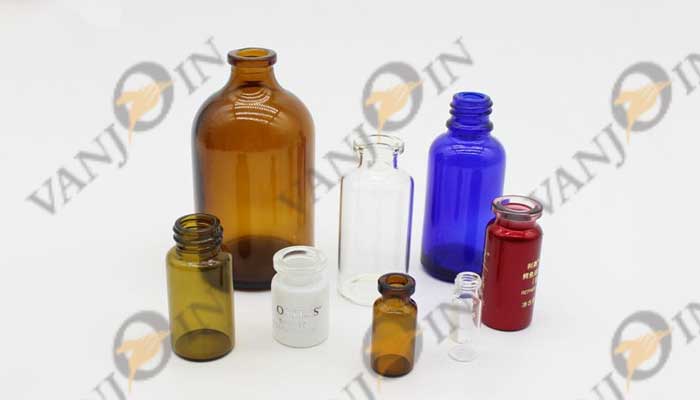
4. Durability and Strength for Safe Transport and Storage
Glass bottles are highly durable, which makes them well-suited for the transportation and long-term storage of medicines.
Strength and Resilience: Glass is a strong material that can withstand physical stress during transportation and handling. It offers better resistance to impacts compared to many plastics, reducing the risk of leaks or breakages. In the pharmaceutical industry, where products are often shipped long distances and handled frequently, this durability ensures that the medicine remains safe and intact throughout its journey.
Temperature and Pressure Resistance: Glass bottles can endure extreme temperatures and varying atmospheric pressures, making them suitable for storage in diverse conditions. Whether in a hot warehouse, cold storage, or during air transport, glass bottles are more resilient to temperature fluctuations compared to plastic bottles, which can warp or become brittle under stress. This makes glass an ideal choice for medicines that require stable and secure storage conditions, ensuring the integrity of the product is maintained from production to patient use.
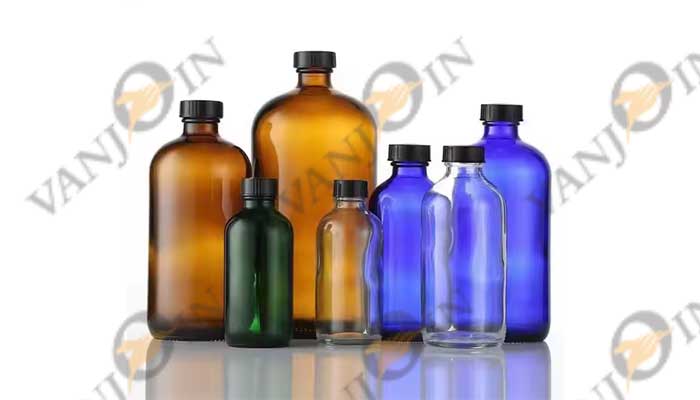
Benefits of Using Glass Bottles for Medicine
The use of glass bottles in the pharmaceutical industry provides several advantages, ensuring the safety, quality, and integrity of medicines. Below are four key benefits:
1. Durability and Strength
Glass is well-known for its robustness, making it a reliable choice for packaging medicines that require long-term stability. Unlike plastic, which can crack, warp, or degrade over time, glass offers superior resistance to wear and tear. It provides excellent protection against physical damage, which is particularly important when handling, transporting, and storing medicines.
Impact Resistance: Glass can withstand extreme temperatures and pressure, ensuring that it remains intact during transit and in varying environmental conditions. This makes glass ideal for medicines that need to be shipped long distances or stored in places with fluctuating temperatures.
Long-lasting Integrity: Because of its structural integrity, glass ensures that the medicine inside the bottle is well-protected, reducing the risk of leakage or contamination during handling.
2. Preservation of Medicine Quality
Glass bottles maintain the quality of the medicine by being an inert and non-reactive material. This makes it ideal for storing medicines without the risk of leaching chemicals from the packaging that could potentially alter or degrade the contents.
Chemical Inertness: Glass does not react with most substances, which helps preserve the chemical composition of the medication. In contrast, certain plastic bottles can leach chemicals that might interact with the medication and affect its potency and safety.
UV Protection: Glass bottles, particularly amber-colored or tinted glass bottles, are effective at blocking harmful UV rays that can degrade sensitive medicines such as antibiotics, vaccines, or biologics. This helps maintain the medicine’s potency and shelf life over extended periods.
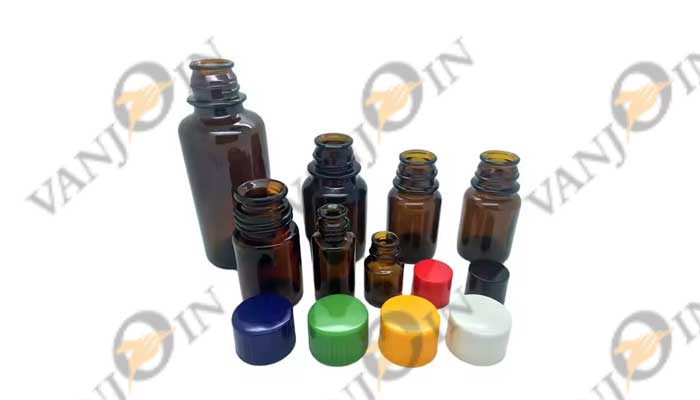
3. Premium Appearance and Brand Image
In the pharmaceutical market, brand perception is crucial. The packaging plays a major role in consumer trust, and glass bottles provide a high-end, professional appearance that can positively impact the perceived quality of the medicine.
Perceived Value: Glass packaging often conveys a sense of luxury and premium quality. Consumers associate glass with reliability, safety, and superior quality. When a pharmaceutical brand uses glass bottles for their products, it signals to the customer that the brand is committed to offering high-quality, trustworthy products.
Customization and Branding: Glass bottles offer flexibility for custom designs, making it easy to differentiate products in the market. Pharmaceutical companies can create unique glass bottles that align with their branding, offering a competitive edge in a crowded marketplace.
4. Environmental Sustainability
Glass is one of the most sustainable materials available for packaging, making it an increasingly popular choice in the pharmaceutical industry. As environmental concerns continue to grow, companies are looking for packaging solutions that align with sustainable practices.
100% Recyclability: Glass is infinitely recyclable without losing its quality or purity, unlike plastic, which can degrade and contaminate the environment. By choosing glass bottles, pharmaceutical companies can contribute to reducing plastic waste and promote a circular economy.
Eco-Friendly Manufacturing: Although producing glass requires more energy compared to plastic, its recyclability and long-term sustainability make it a more environmentally responsible option. By using glass for medicine bottles, companies can reduce their carbon footprint, help conserve resources, and support a greener future.
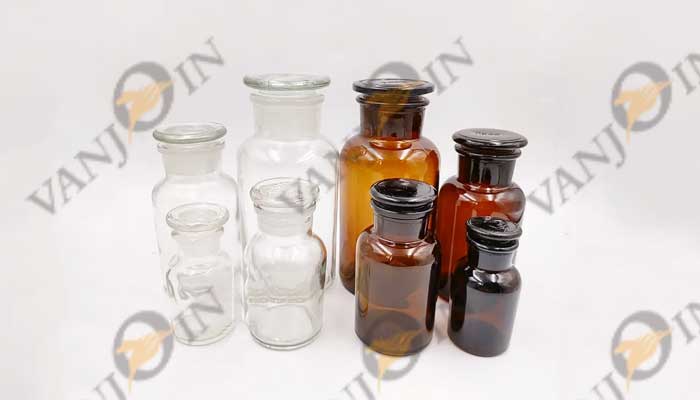
Vanjoin Glass: Your Perfect Glass Medicine Bottle Manufacturer
As a pharmaceutical bottle manufacturer, Vanjoin Glass is committed to providing high-quality, customizable, and sustainable glass packaging solutions for the pharmaceutical industry. Our expertise in producing a wide range of glass medicine bottles has helped numerous pharmaceutical companies meet the growing demand for effective and eco-friendly packaging.
We offer a variety of custom glass bottles designed specifically for medicines, including pill bottles, prescription bottles, and glass syrup bottles, all manufactured to meet international standards and regulatory requirements. At Vanjoin Glass, we understand the importance of both functionality and aesthetics in pharmaceutical packaging. Our bottles are designed to protect the contents, provide clear labeling, and enhance the product’s overall presentation.
Vanjoin Glass’s bottles comply with the highest FDA and ISO standards to ensure that your products are safe, effective, and of the highest quality. Vanjoin boasts over 39 years of industry experience, supported by a highly professional sales team dedicated to addressing every customer inquiry with the utmost attention. From initial proofing to mass production, Vanjoin ensures meticulous follow-up at every stage. The team remains in constant communication with customers, carefully accommodating any adjustments, and striving to provide a seamless experience that guarantees customer satisfaction and peace of mind.
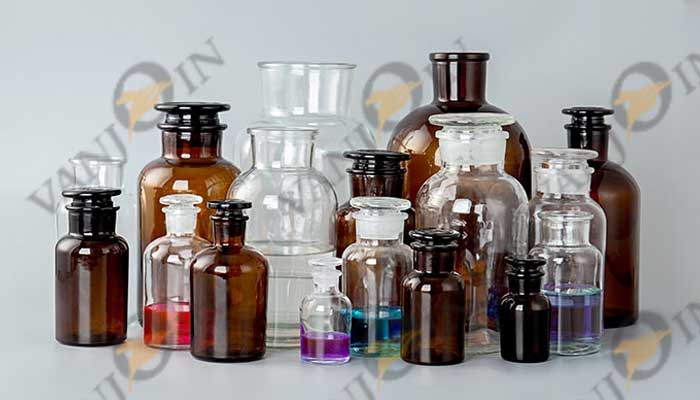
Conclusion: The Continued Dominance of Glass in Pharmaceutical Packaging
The use of glass bottles in the pharmaceutical industry continues to be a popular choice for a variety of reasons, including safety, durability, and sustainability. As the demand for eco-friendly and sustainable packaging increases, glass offers the perfect solution for pharmaceutical companies that prioritize both quality and environmental responsibility.
At Vanjoin Glass, we are proud to be a trusted manufacturer of glass medicine bottles that meet the stringent requirements of the pharmaceutical industry. Whether you need glass pill bottles, prescription bottles, or any other type of glass packaging material, Vanjoin Glass is your ideal partner for high-quality, customizable packaging solutions.
As the industry evolves, Vanjoin Glass is committed to providing innovative packaging solutions that meet the needs of pharmaceutical companies and help protect the medicines that improve lives around the world.